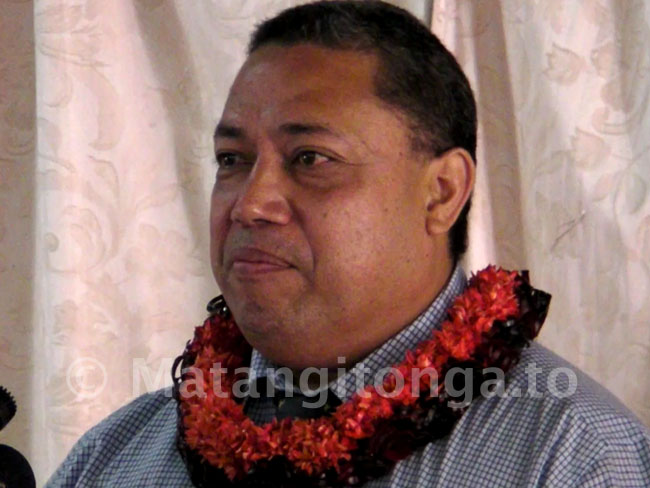
Domestic violence statistics in Tonga are disturbing, women have died, and the high rate of physical, sexual and emotional abuse impacts the whole community. It is shocking to see Tonga, a Christian country, bashing its daughters as soon as they become women, community leaders said in Nuku'alofa on April 12.
Tonga’s Director of Health, Dr Siale 'Akau'ola, said that it was time to change what the society and community think about violence.
Domestic violence was a significant cause of injuries admitted to the surgical ward at Vaiola Hospital, he said in his keynote speech on the 'Consequences of Family Violence on the Health Sector in Tonga'.
He was speaking to about 100 people at the opening of a five-day workshop on 'Upskilling Journalists and Advocates on Reporting Family Violence in Tonga', held at the Basilica.
"The perception of the society and community is very important. What we think about violence is very important. I think we need to change that - because what you think is what you say, and what you say is what you do, and what you do produces the consequences.
"It is important we address that because we at the Ministry of Health are at the end collecting the consequences, which is the damage and at times always too late."
Disturbing statistics
Dr 'Akau'ola said that a first National Study on Domestic Violence by the Ma'a Fafine moe Famili in 2009, was launched by the Prime Minister last year.
"They are disturbing statistics and I think if we are not affected by these statistics, there must be something wrong with us!" he said.
The report found that 45 per cent of Tongan women reported having ever experienced at least one of the three types of violence: physical, sexual, and emotional violence during their lifetime.
"Some 33 percent of ever-married or partnered women were victims of physical violence in their lifetime and in two thirds of these, the violence was fairly significant - it included being punched, hit, dragged, beaten-up, choked, burnt or having a weapon against them,” he said.
"This is first time we have seen statistics like this in Tonga, it was an excellent report and I have brought out some perceptions for us to hear," he said.
Controlling behaviour
The report states that 91 percent of women had experienced, at least once in their lifetime, controlling behaviour of the husband.
"So the husbands were always trying to control the wife as if she does not have her own choice.
"57 percent of husbands controlled the woman's access to medical health, that includes surgery, if she has had 12 kids and wants tubular ligation she has to ask permission of the husband - just think about it. Then 39 percent want to control the wife from seeing her friends for a cup of tea,"
He was also concerned that the women were thinking the same as the perpetrators of the violence. "I mean, this is the kind of thinking in our society. Now the women are thinking the same!"
Mental health
Worldwide, it has been found that many of the perpetrators of family violence have mental health issues.
"We know in Tonga there are a lot of personality traits here and people with poor impulse control.
"We should be aware that you may be stuck with a violent husband but he probably needs some mental treatment, so that you don't keep suffering the same treatment all the time," he said.
Quoting a police report he said that from 2000-09 there were 2,753 women recorded as victims of violence for physical abuse and sexual assaults.
Violent deaths
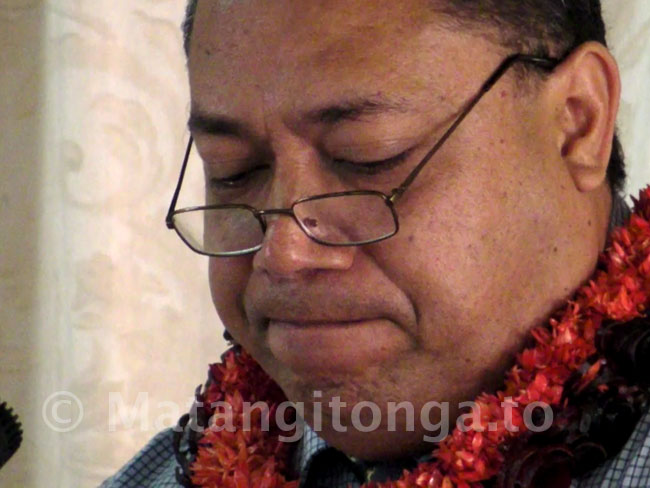
He said in 2009 four women were killed violently in Tonga because of domestic violence.
Dr 'Akau'ola became emotional as he was personally involved in the cases as a pathologist.
"I feel very strongly about it because I went to court providing evidence on all four cases, I had to listen to the circumstances around these fatalities and it is something you never forget and it affects you," he said.
Dr 'Akau'ola said family violence has profound effects in families, and significant lifelong physical and psychological consequences.
"It is clear we have to work together, we need to change our mind set," he said.
New Zealand
Stephanie Edmond, a senior journalism trainer from the Family and Community Services of the Ministry of Social Development in Wellington, and the Project Manager for a government funded campaign 'Its not Ok' will facilitate the training from April 15-19.
She said news media has a critical role to play in portraying domestic violence as a serious social problem.
Stephanie said they realized early in their campaign when it was launched in 2007 they could not change communities' attitudes toward family violence and encourage people to speak up when it happens, without the news media.
"In the New Zealand media back then if you read a newspaper, watched TV or listened to the radio, one would not know that half of the murders in the country were a result of family violence, or that 10 children die each year at the hands of a family member, and that one in three women experienced violence from a partner in their lifetime.
"We encouraged the news media to give the topic the importance it deserved. We found that the news media were very ready to do that and weren't opposed to doing it but they just didn't have the information," she said.
Stephanie said domestic violence is everybody's problem. "As journalists we do have a responsibility to communicate that to everybody and hopefully we can be part of preventing that social problem and help people to get the help and making it Not Ok in New Zealand and in Tonga," she said.
"We are very proud of the work we have done with the news media in reporting domestic violence. Tonga is the first country in the world who has wanted to know what we have done and invited us to bring it here to share with you, and I want to congratulate you for that," she said.
Need to help perpetrators
Tonga's Anglican Archdeacon Joe Le'ota who spent 12 years working in New Zealand in a programme called "Living Without Violence", mainly for Pacific islanders, prayed for a successful outcome of the workshop.
"It is shocking to see in the internet that Tonga is the highest place of violence to its women outside marriage here in Tonga. We call ourselves a Christian country, but we are still bashing our daughters as they come to 15 and they are young women."
He said he hoped that there would soon be an NGO in Tonga that would be able to work with the perpetrators.
"We have to stop the perpetrators or teach them some way to accept women as equals at home too," he said.
Women’s Affairs
The workshop is provided by the Tonga National Planning Committee for the International Women’s Day under the Secretariat of Department of Women’s Affairs, Ministry of Internal Affairs, with funding support from AusAID and the Australian High Commission in Nuku‘alofa. It is the second part of the celebration to mark the International Women's Day 2013 with a theme "Breaking the Silence that Allows Violence Against Women".
The workshop is offering five TNPC-IWD journalism awards, sponsored by Matangi Tonga Online, the Tonga Development Bank, Women in Sustainable Enterprises (WISE) Tonga Inc., and Lepolo Taunisila of the Pacific Regional Rights Resource Team.


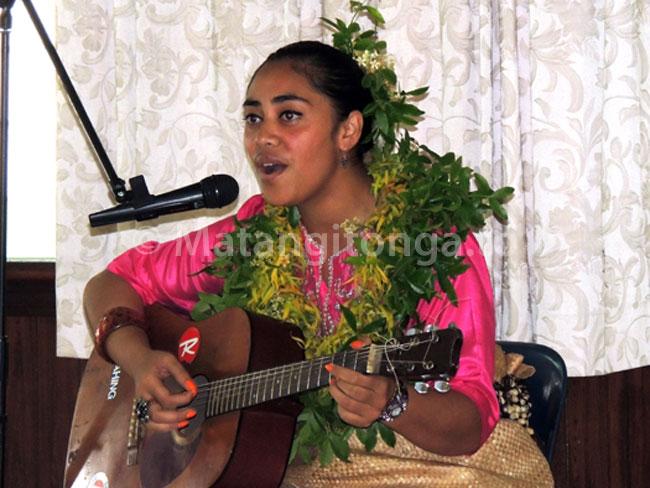
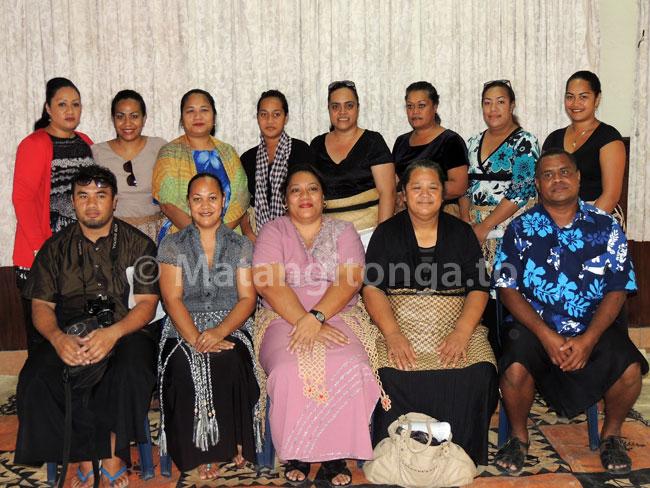
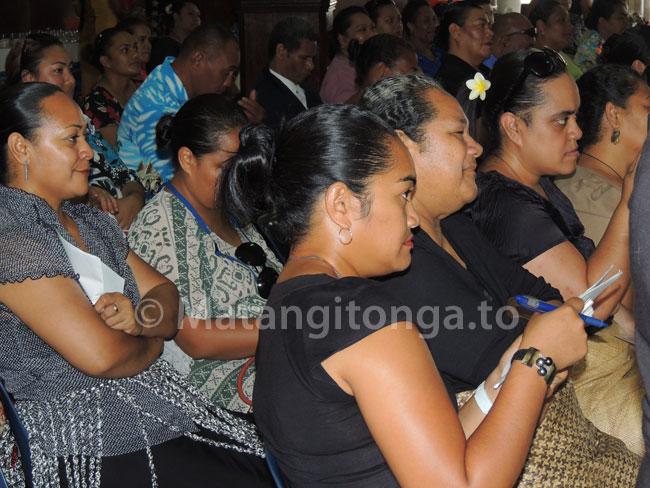
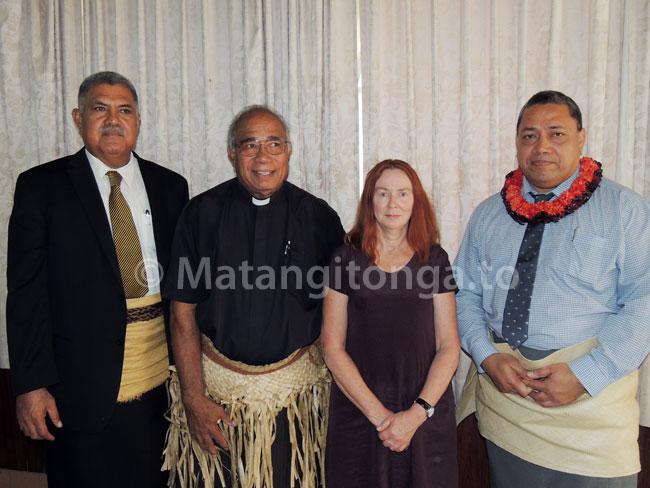
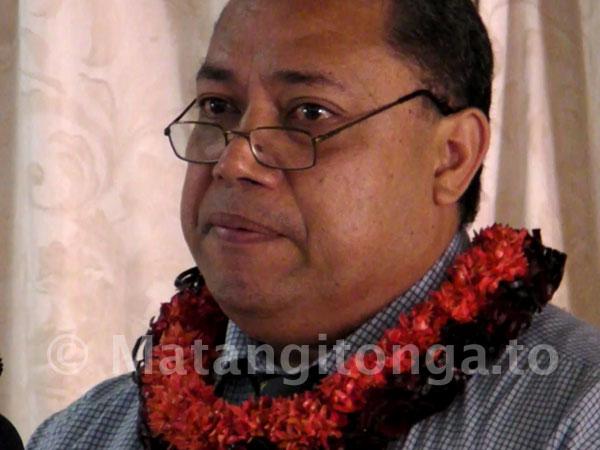
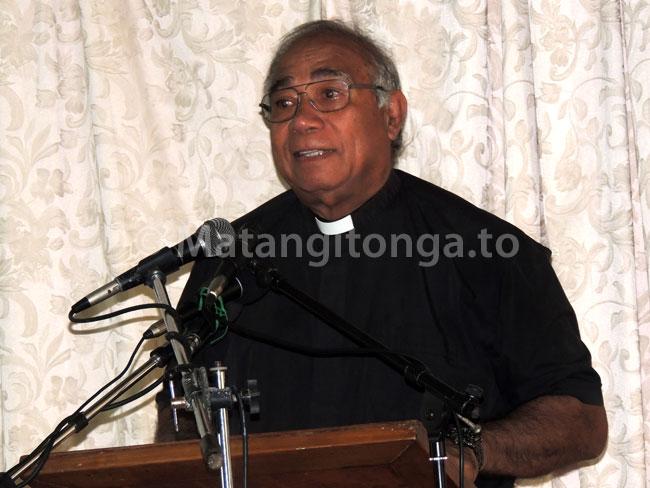
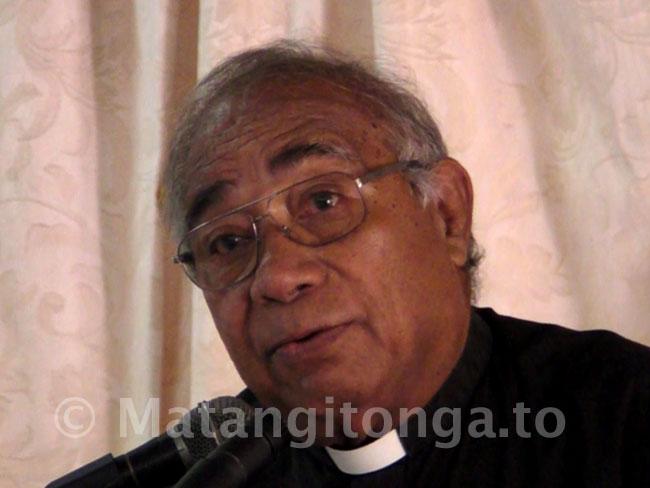
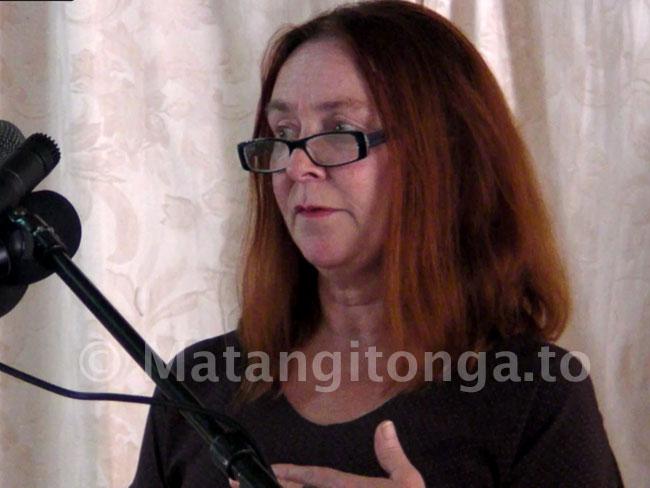


Comments
Koe taha 'eni 'oe fakamatala
Ko e taha 'eni 'o e fakamatala fakalilifu mo'oni kuo mau fanongo atu mei muli ni fekau'aki pea mo hono pa'usi'i 'o e hou'eiki fafine 'i Tonga. Pea 'oku 'oatu 'emau 'ofa ki si'i kakai fefine kotoape 'oku hoko kiai 'a e me'ani 'i he Pule'anga Tonga. Ko e me'a 'e taha 'oku mau tokanga atu kiai, pe 'oku mo'oni (accurate) peseti 100 'ae fakamatala 'a Dr Siale 'Akau'ola mo e fa'ahinga ko'eni, he 'oku fu'u ongoongo kovi lahi 'a Tonga 'i mamani. Mahalo ko e 'uhinga pe 'o e fakamatala ni ke ofe'i tokanga 'a e kakai Tonga ki he feinga ko'eni 'a e kakai fefine ke nau tatau pe mo e kakai tangata, ka 'oku ou tui ko e fakamatala ia ko'eni 'oku fu'u ta'efakapotopoto, pea 'oku 'ikai fu'u mo'oni fau. 'Oku tatau 'a e ngaahi fonua kotoape 'i mamani 'a e hoko ai 'a e ngaahi palopalema fekau'aki pea mo e kakai fefine, faka'api (domestic violence), palopalema 'o e fanau etc. Ka 'oku 'ikai ko Tonga 'a e kovi taha. 'I he ngaahi fonua kotoape, Kalisitiane, Hindu, Muslim, Budha etc ko e me'a tatau aipe 'a e 'i ai 'a e ngaahi hia felave'i mo e kakai fefine, pea 'oku 'i ai mo e ngaahi founa 'oku toe fakalilifu ange ia ai, ka 'oku 'ikai ko Tonga 'a e kovi taha. 'Oku kau 'a Tonga 'i he ngaahi fonua lelei taha 'i he tauhi honau hou'eiki fafine 'i mamani, kae me'apango kuo hake 'i Tonga 'a e taha 'o e ngaahi saianisi fo'ou taha 'o e kuonga 'ke tatau pe 'a e kakai fefine mo e kakai tangata 'i he me'a kotoape'. Ka 'oku 'ikai koha 'uhinga lelei ia ke 'omai ai 'a e ngaahi fakamatala ta'efakapotopoto ko'eni. SAIA
We have to put a stop to this
We have to put a stop to this abuse. Responding to SAIA, abuse is wrong and inhumane regardless if the whole world is doing it or just one country. We have to get back to fixing the family unit. Let's talk about abuse of sisters and mothers and grandmothers, aunties as so forth...referring to merely "women" seems to be an escape from being too close to home. Too much of our effort is being relegated to the churches, schools and social clubs. It was father Damien of Hawaii I thought who said, give me the first 5 years of your child and no evil will sway him from the straight and narrow path. Most of us parents have our children for up to 20 years. Our children will most likely follow and dance to the drumbeats he has been accustomed to at home. Psychiatrists have argued that children from abusive homes end up to be abusers themselves.
There has been far too much praying and very little pragmatic approach to this problem. Attitudes have to change on both side of the fence. Here is one solution from our family. We have taught our daughters and nieces to be to be very independent...be able to look after themselves financially and emotionally...we teach them to love and be loved but as soon as there is abuse they can say their farewell and move on. For us parents, we have to build and maintain a home that will be open 24/7 for our girls to come back to in the event of an abusive relationship. … This also applies to any of our sons.
We have to step up and put a stop to this abuse practice instead of worrying about the accuracy of our rank as a country on the list of abuse to women.
Thats my wish,Sione.I agreed
That's my wish, Sione. I agree with you a 100%. I worked for the San Francisco Police Department in the past 25 years, and one of our main jobs to protect the women and children. I found San Francisco only, is far far worse than Tonga in this kind of behaviour. It seems impossible to stop this kind of abuse, but we did our best to protect the women and chidren. Our wish, that one of these days, this kind of abuse will stop. SAIA